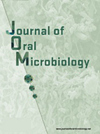投稿信息
稿件收录要求
Topics: oral infections, aetiologic agents, pathogenesis, systemic diseases, ecology/environmental microbiology, treatment, diagnostics, epidemiology, basic oral microbiology, taxonomy/systematics.
Types of papers: original research, review articles, debate pieces and short communications addressing current knowledge on the topic and the practical implications of implementing this knowledge.
SECTION POLICIES
EDITORIALS
INVITED EDITORIALS
REVIEW ARTICLES
INVITED REVIEW ARTICLES
ORIGINAL ARTICLES
INVITED ORIGINAL ARTICLES
SHORT COMMUNICATIONS
CURRENT DEBATES
STUDY DESIGN ARTICLES
BOOK REVIEWS
PHD REVIEWS
NOTES
COMMENTARIES
PGLONDON2015
PEER REVIEW PROCESS
Papers submitted to Journal of Oral Microbiology are subject to rigorous peer review so as to ensure that the research published is ''''good science''''.
Manuscripts are sent out for review electronically, and all correspondence takes place via e-mail. Although the peer review process is accelerated by the use of electronic communication, traditional, high-quality peer-review standards are applied to all manuscripts submitted to the journal.
When submitting an article, authors are invited to suggest two or three possible reviewers who should be experts in their field of study and the subject matter of the article. Authors should not suggest anyone who has published with any of the co-authors within the last five years or anyone who works at the co-authors'''' institutions. Minimum information to be given for the suggested reviewers is first name, last name and email address. The Editors may or may not make use of the authors'''' suggested reviewers.
Papers are sent to at least two independent referees.
Journal of Oral Microbiology has a ''''double blind'''' review process: Authors are not told who reviewed their paper, and reviewers are not told who wrote the paper. Peer reviewers are informed of the identity of the authors immediately after the manuscript is either accepted or rejected. The referees’ identity remains unknown to the authors although it is up to the referee if he/she wants to contact the author at a later stage and reveal his/her identity.
Peer reviewers are asked to give their opinion on a number of issues pertinent to the scientific and formal aspects of a paper, and to judge the papers on grounds of originality and urgency. All relevant information will be forwarded to the author(s).
Peer reviewers will have six possible options, for each article:
1. Accept manuscript (i.e. no need for any revision)
2. Accept after revision (i.e. accepted if the author makes the requested revisions)
3. Revise and resubmit (i.e. accepted or rejected after revisions have been made - paper will be sent out for another peer review round)
4. Submit elsewhere (i.e. if the manuscript is better suited for another journal)
5. Reject manuscript (i.e. if the manuscript is substandard)
6. See comments (i.e. if the reviewer cannot choose from any of the above)
In addition, papers may be rejected directly by the Chief Editor if judged to be out of scope or if scientifically or formally sub-standard.
When asking for revisions, reviewers have two possible goals: to ask authors to tighten their arguments based on existing data or to identify areas where more data are needed. Even formal revision may be required if the language or style is sub-standard. To facilitate rapid publication, authors are given a maximum of 2 months for revision. After 2 months, revised manuscripts will be considered new submissions.
Publication Fees
The Open Access model used for Journal of Oral Microbiology implies that production costs are mainly covered by publication fees. We strive to keep publication fees at a minimum.
The publication of an article (up to 7 printed pages) in Journal of Oral Microbiology incurs a charge of EUR 1600, excl. VAT (Europe), USD 1850 (rest of the world). Articles exceeding 7 typeset pages may incur an additional charge of EUR 65/USD 75 per page. It is customary that the author’s institution covers the publication costs for articles resulting from research undertaken at the institution, or that money has been earmarked in the grant or stipend the author has received to be able to carry out the research. For a list of OA-friendly universities and funding agencies, please see here. Additional information on how to claim reimbursement/support for publication fees can be found here.
The total sum will be charged to the author(s) upon acceptance of his/her article. It is the publication year that governs the publication fee, not the submission year.




